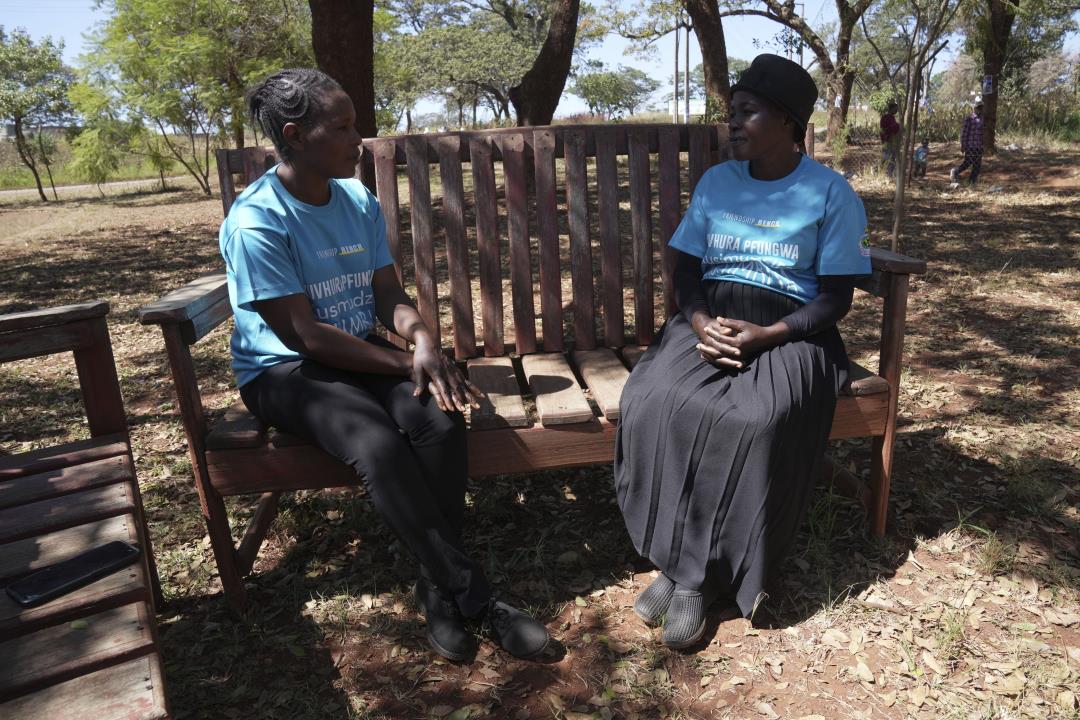After her son, the light of her family and the family’s only breadwinner, was arrested last year, Tambudzai Tembo had a breakdown. In Zimbabwe, where clinical mental health services are few and far between, the chances of getting professional help were slim to none. She considered suicide. “I didn’t want to live anymore. People would see me and think everything was fine, but inside my mind was racing,” the 57-year-old said. “I was all alone.” A wooden bench and a caring grandmother saved her. In Zimbabwe, older adults are at the heart of a homegrown mental health treatment now being adopted in countries like the United States, according to the Associated Press.
The approach involves setting up benches in quiet, discreet corners of local clinics, churches, poor neighborhoods, and universities. Elderly women with basic training in problem-solving therapy sit patiently there, ready to listen and participate in one-on-one conversations. The therapy is inspired by traditional Zimbabwean practices centered around grandmothers, who could be relied upon to impart wisdom during difficult times. Urbanization, the breakdown of close-knit extended families, and modern technology led to the practice being abandoned, but it is now proving useful again as mental health needs grow.
“Grandmas are the keepers of local culture and wisdom. They are rooted in their communities,” says Dickson Chibanda, professor of psychiatry and founder of the initiative. “They stay in their communities, and what’s more, they have an incredible ability to use what we call ‘expressed empathy’… to make people feel respected and understood.” Now partnered with the Ministry of Health and the World Health Organization, the network has grown to more than 2,000 grandmothers across the country. The network says that by 2023, more than 200,000 Zimbabweans will have sat on a bench to receive therapy from trained grandmothers. (You can find out more about similar initiatives starting in the U.S. and elsewhere here.)
